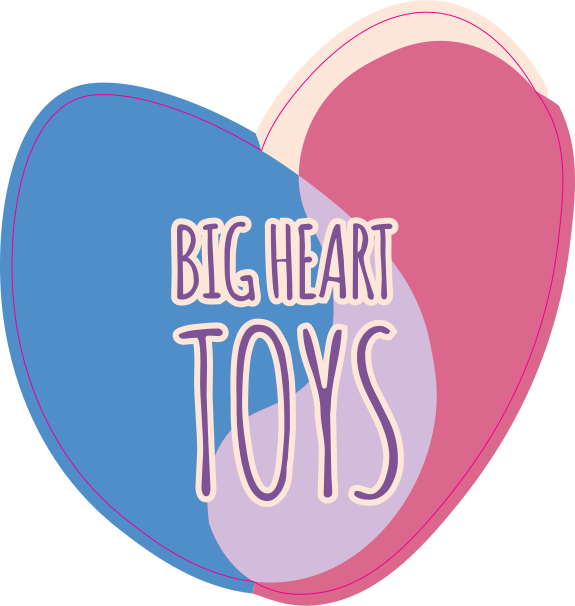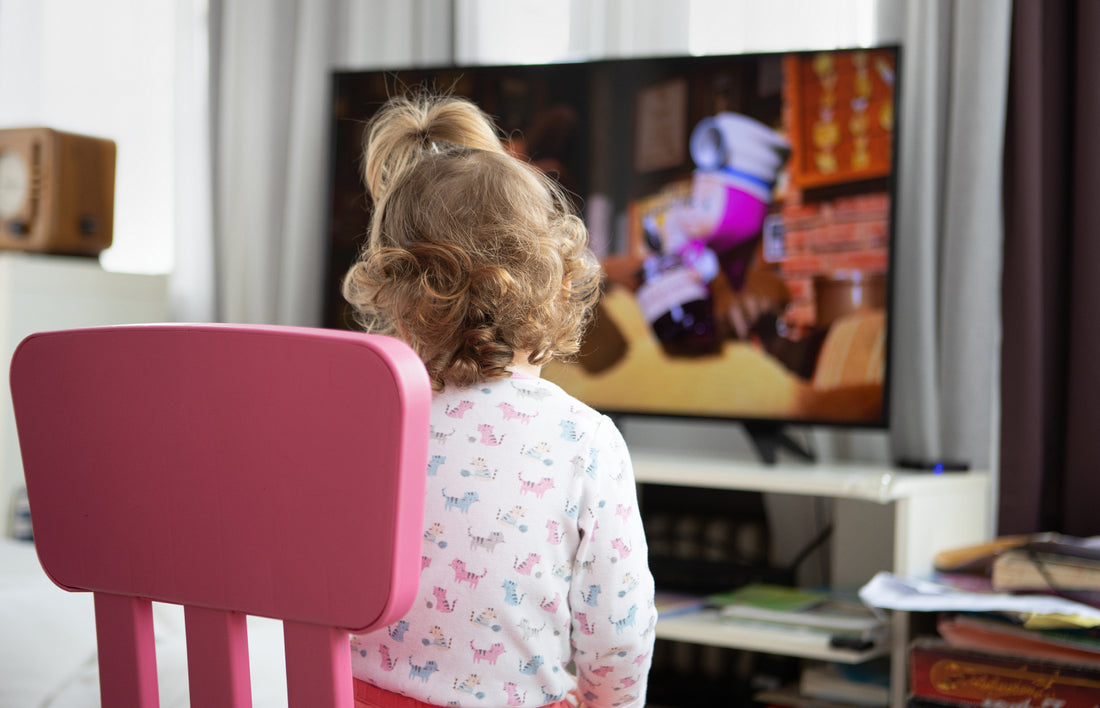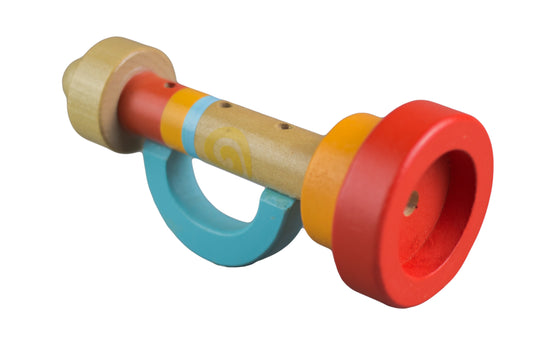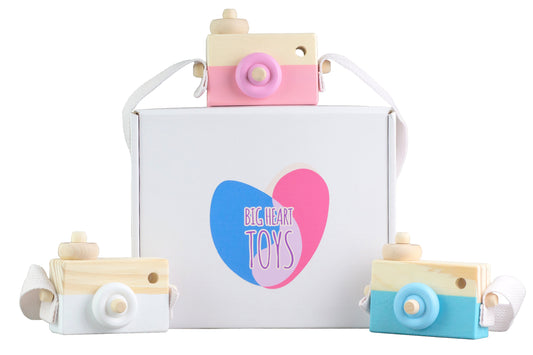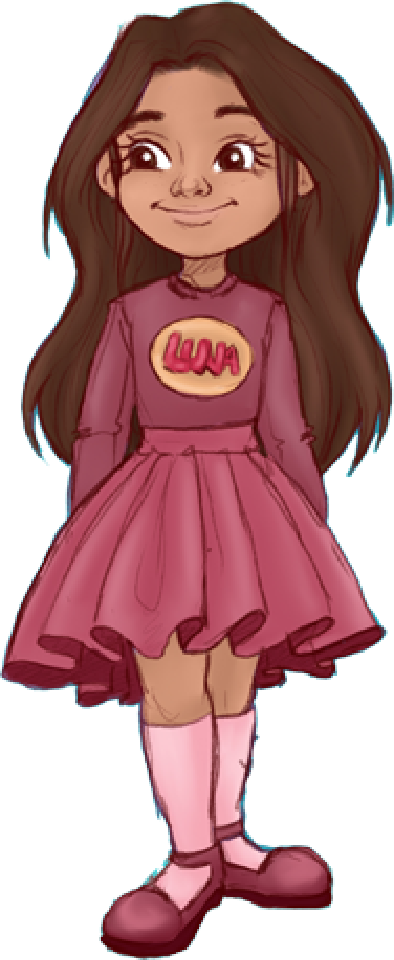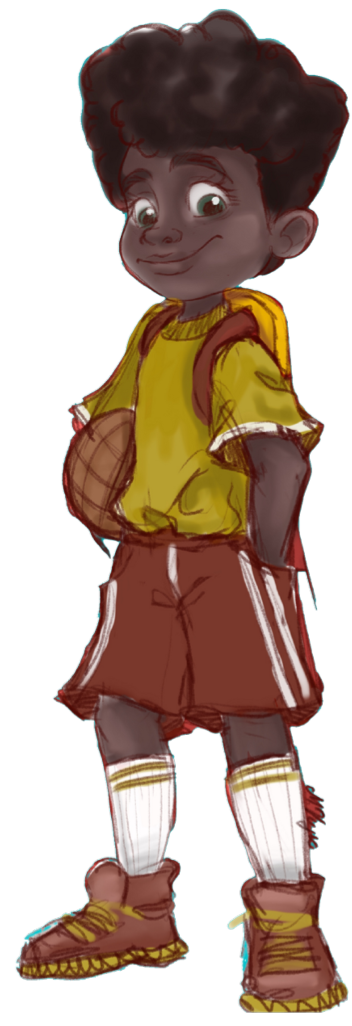When letting little ones indulge in some screen time, many parents hope to find engaging and enriching content. Technology for toddlers, in moderation, is wonderful and can be an excellent learning tool when used wisely and with purpose. We have carefully curated a list of educational TV shows that not only entertain but also stimulate toddlers to encourage learning and social skills.
What Makes a TV Show Educational?
Of course, learning content in the traditional form would make a TV show educational, but there are also many other aspects to consider. Some TV shows do cover things like the ABCs, counting, colors, patterns, and rhymes, but others dive into social skills, communication building, and developmental education.
Children's shows that employ simple and repetitive language can teach children to communicate in a more clear and concise manner. Social and emotional learning (SEL) can be taught when characters demonstrate skills like sharing, taking turns, and expressing feelings. They can model positive behavior and encourage empathy and kindness.
Cognitive skills such as problem-solving acted out through real-life circumstances can give children a role model for how they can react in difficult situations. Many of these shows use relatable scenarios to work through things your toddlers may experience or wonder about in their day-to-day life, making this learning realistic and applicable.
TV shows can be a great learning supplement and can be used along with hands-on learning, social interactions, and other learning activities. It should not replace these situations but can be used to further enhance skills they will need when given these opportunities.
What Are the Best Educational TV Shows for Toddlers?
We’ve put together a list of some of the most loved educational shows for young children. Parents and caregivers, if you’re looking to use screen time in a meaningful way, try one of these! Most of these picks can be found on Netflix, Hulu, and Amazon Prime Video for easy access.
1. Sesame Street
PBS Kids’ Sesame Street has been a beloved and highly regarded program for toddlers and preschoolers for decades. It is carefully designed to align with the developmental needs of toddlers. It focuses on a multitude of foundational skills, such as numbers, letters, shapes, colors, and early literacy.
It captures their attention and focuses on cognitive, social, and emotional health. This show uses a mix of live-action segments, animation, songs, and puppetry to create an engaging and interactive format, making learning fun.
Sesame Street is also admired for celebrating diversity and promoting inclusivity. It features a diverse cast of characters from various backgrounds and abilities, reflecting the real world. One of the more beloved characters on the show is a nonverbal girl with autism.
Sesame Street shows all the many different ways this girl can successfully interact and communicate and teaches young children that people can be different while still being special and important.
2. Daniel Tiger's Neighborhood
Another popular PBS Kids Network show is Daniel Tiger’s Neighborhood. Based on the old classic Mr. Rogers’ Neighborhood, Daniel Tiger has gained recognition for its educational and positive impact on toddlers.
Daniel Tiger focuses on SEL, which is crucial for toddlers’ development. The show helps children better understand and navigate their emotions, teaching empathy, kindness, problem-solving, and self-regulation.
This show uses repetition as a teaching tool. Key concepts and learning is taught through recurring songs, and catchphrases meant to be memorable for tots.
The show emphasizes the importance of family and community relationships, showcasing diverse family structures and highlighting the importance of strong bonds, trust, and communication within families.
Daniel Tiger’s Neighborhood preps children for the transition into school, introducing routines, expectations, and social interactions that children may experience in a school setting. Overall, this show combines educational content, positive values, and storytelling to create a memorable learning experience for growing minds.
3. Blue's Clues & You!
This Nickelodeon classic has received praise for its interactive and engaging approach to learning. It presents puzzles and challenges that encourage children to engage in real-time problem-solving and critical thinking. Viewers are encouraged to search for clues and piece together information to find a solution.
The show supports early literacy development by introducing and reinforcing foundational skills such as letter recognition, phonics, and vocabulary. It stimulates creativity and imagination, inviting toddlers to participate in imaginative play. It also fosters emotional intelligence, talking about feelings, empathy, and understanding to help toddlers label and work through their emotions appropriately.
Blue’s Clues prepares children for future learning both academically and socially. It combines interactive learning, problem-solving, social-emotional development, and creativity to provide toddlers with an educational and entertaining experience.
4. Doc McStuffins
Disney Channel’s Doc McStuffins is widely regarded as educational and beneficial for toddlers. First, it introduces children to basic health and medical concepts in a fun and accessible way. This show promotes an understanding of the human body, hygiene practices, and general health and wellness.
The series emphasizes empathy and compassion, teaching toddlers to be caring and understanding toward others. It embraces diversity and promotes inclusivity with the cast it features. Doc McStuffins also enhances communication skills, imagination, and creativity, teaching children that they can be anything they want to be.
5. Mr. Roger’s Neighborhood
An old one, but a good one! PBS Kids’ Mr. Roger’s Neighborhood is similar to Daniel Tiger’s Neighborhood (as that is based on this one) but utilizes real people rather than animations. Mr. Rogers has a kind, gentle demeanor, providing a safe and supportive environment for children to explore emotions and emotional intelligence.
Mr. Rogers encourages toddlers to express themselves and communicate effectively. It stimulates imagination, featuring a world of make-believe. It teaches useful life lessons and demonstrates everyday activities such as sharing, taking turns, and resolving conflict.
This gentle and thoughtful series has inspired generations of children to be kind, curious, and compassionate individuals.
6. Mickey Mouse Clubhouse
Disney’s Mickey Mouse Clubhouse is an upbeat show for children to learn early math skills, problem-solving, language, social skills and cooperation, early science, and character education.
Mickey Mouse Clubhouse uses music and movement to promote motor skills and add a fun and interactive element to the learning experience. The beloved characters, alongside Mickey, teach kids about friendship and teamwork, always working together and trying to be good friends to one another.
This show promotes holistic development and prepares toddlers well for future learning.
Alternatives to Screen Time
Looking for learning alternatives to replace screen time at home? There are many fun activities to do with your little learners to engage in bonding time and promote learning in an engaging way.
Picture Books
Picture books allow you and your child to spend time together, laugh together, and learn together. These books have a certain visual appeal with vibrant illustrations to capture a child’s interest. Combining text with these beautiful illustrations creates a multisensory experience, making the reading engaging and immersive.
The compelling stories told introduce young readers to diverse characters, cultures, and settings, promoting empathy and understanding. Narrative elements such as plots, conflicts, and resolutions can develop comprehension and critical thinking skills.
Interactive books with social stories give kids the tools to understand how to best react and handle certain situations. These types of picture books can be interactive, allowing kids to learn about reactions and consequences, all while promoting the learning of positive and appropriate behavior. It also helps them learn to emotionally regulate when dealing with big feelings.
Reading develops vocabulary and reinforces word recognition and retention. Overall, reading with your little one will spark imagination and creativity, emotional development, and can foster a lifelong love of reading.
Math Games
Toddlers as young as 36 months can develop a love of learning through introductory Math Games. These games can teach the concepts of counting, one-to-one correspondence, sorting, and number recognition in a fun way that doesn’t even feel like learning.
Even more, these games are carefully created to bring in fine motor skill practice and creativity. You won’t regret spending one-on-one time with your child and watching all the wonderful things their little minds are capable of.
Play Pretend
Playing pretend, also known as imaginative or pretend play, offers endless benefits for cognitive, social, emotional, and creative development. Kids can practice problem-solving, critical thinking, and decision-making in these pressure-free situations. They can explore new ideas and think outside the box, expressing themselves creatively,
Playing with your child and engaging in their imaginative play helps the development of language and communication skills as your family pretends to have different conversations and interactions. Pretend play allows children the freedom of emotional expression in a safe and controlled environment.
You can work on fine motor skills using building tools to create your own little town or fix things around the house. You can role-play different jobs and let your child practice what they want to be when they grow up. There are endless dress-up sets and toys to make your child feel like the future doctor, firefighter, or photographer that they are.
In the long run, playing pretend impacts a child’s mental health, increasing their self-confidence and self-esteem. And, of course, playing pretend is fun! The joy, excitement, and sense of wonder it provides is unmatched.
Final Thoughts: Kids’ Shows Worth Watching
Educational TV shows tailored to toddlers have the potential to positively shape their early learning experiences. Check out the posts on our informational article collection to find out more about the unique needs and developmental stages of toddlers.
You can also check out The Big Heart Show, which shares in a kid-friendly way about dealing with different challenges kids may face. Your family and ours can grow together, sharing more about our experiences along the way!
Sources:
Transformative SEL Conditions for Thriving | CA Dept of Education
Explaining Multisensory Experience | University of California San Diego
What Are Fine Motor Skills? | Understood
Communication and Your 2- to 3-Year-Old (for Parents) | Nemours KidsHealth
Seven Lessons from Mister Rogers That Can Help Americans Be Neighbors Again | Greater Good Berkley
